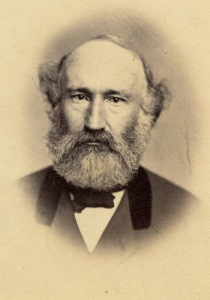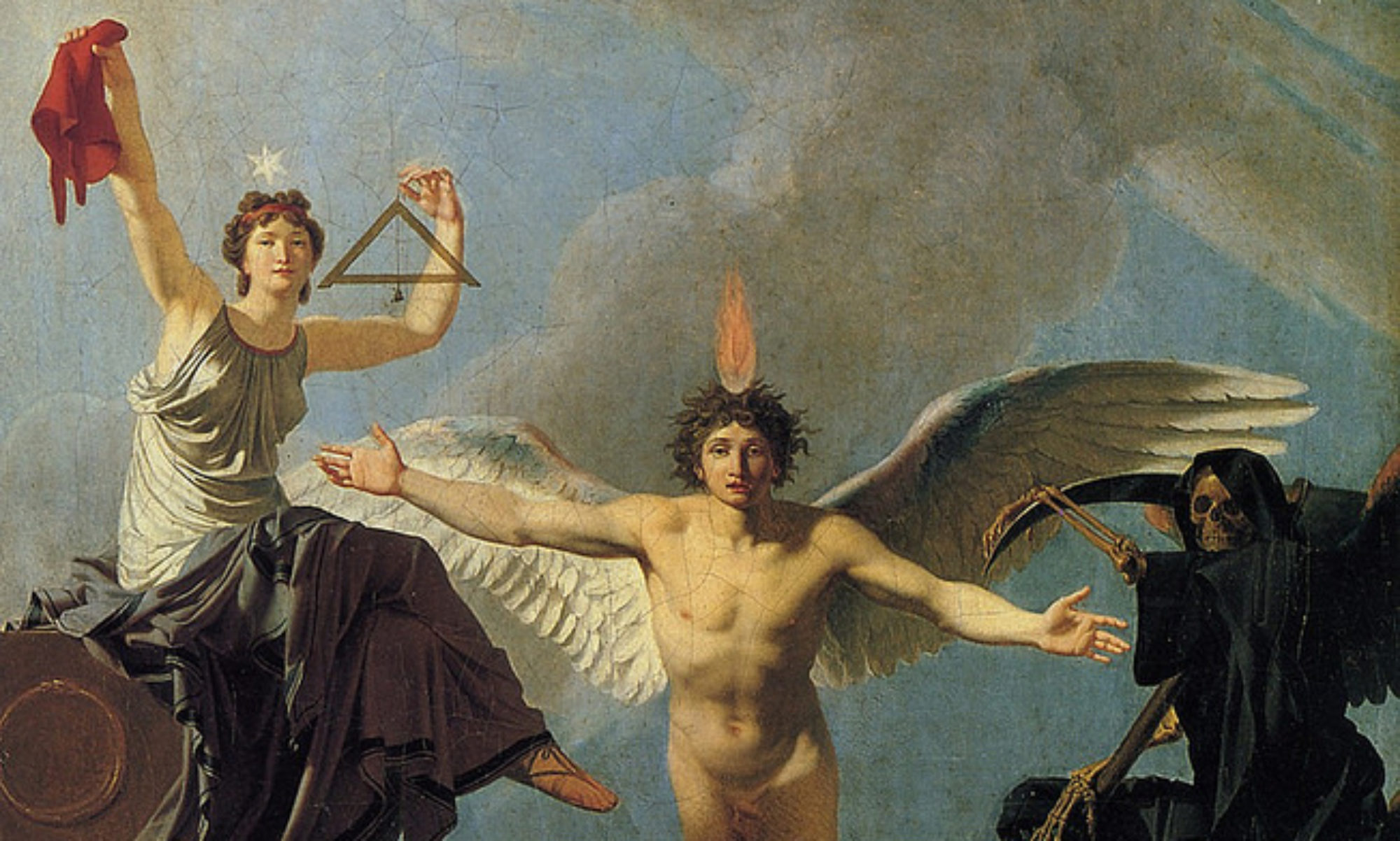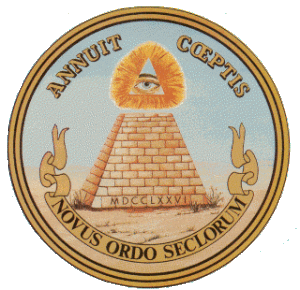“You become responsible, forever, for what you have tamed”
Antoine de Saint-Exupéry
First I’ll give you my short outline on the Skull and Bones and why they are important to this discussion, then you can read the Wikipedia article on them and then you will find a listing of Bonesmen, keep what I say here in mind while you look over the list of names.
The Skull and Bones fraternity was the direct inheritor of the Hegelian New World Order scheme from the Illuminati Order, I believe William H. Russell replaced Weishaupt as the head of the order and it became a part of the secret initiation of the Skull and Bones.
The initiation involves dedicating your life to furthering the efforts of the Skull and Bones, supporting fellow Bonesmen and following directions given by the council of elders. It should be easy to determine who they are, just look at who is still alive from the oldest graduating classes, it will quite likely include a Bush, Walker, Taft and other bloodlines that extend throughout the fraternities history.
If a Bonesman enters into business he will be expected to favor other Bones companies. If he enters law he will be expected to favor Bonesmen when adjudicating. If he enters politics he will favor Bonesmen in all sorts of manners. The mass collective “buying power” of this select and interwoven group compounds greatly as they expand their empires in many diverse fields, and when considering the influence remember the it will include families, not just the Bonesman. Heinz married Bonesman Kerry, I suspect you might find strong ties with tomato plantations and Bonesmen.
Political appointments have served the Bonesmen well, from Samuel P. Bush, General Manager of Buckeye Steel Castings Company, being appointed Chief of the Ordnance, Small Arms, and Ammunition Section, War Industries Board as the U.S. prepared to enter World War I, to Roy Leslie Austin, nominated as ambassador to Trinidad & Tobago in 2001 by Bones Brother George Bush. He is one of 10 presidential appointments who were fellow members of Skull & Bones at Yale with President Bush, as was George Herbert Walker III, ambassador to Hungary from 2003-2006.
Diversification, cooperation, coercion, subterfuge, blackmail, murder, all of these and more are parts of the arsenal of a conspiratorial group that has taken a blood oath to support the notion that the ends DO justify the means and that oath supersedes any an all oaths the came before of will come after, including the oath of office of the President.
 Skull and Bones is an undergraduate senior secret society at Yale University, New Haven, Connecticut. It is the oldest senior class landed society at Yale. The society’s alumni organization, which owns the society’s real property and oversees the organization, is the Russell Trust Association, named for William Huntington Russell, who co-founded Skull and Bones with classmate Alphonso Taft. The Russell Trust was founded by Russell and Daniel Coit Gilman, member of Skull and Bones and later president of the University of California, first president of Johns Hopkins University, and the founding president of the Carnegie Institution.
Skull and Bones is an undergraduate senior secret society at Yale University, New Haven, Connecticut. It is the oldest senior class landed society at Yale. The society’s alumni organization, which owns the society’s real property and oversees the organization, is the Russell Trust Association, named for William Huntington Russell, who co-founded Skull and Bones with classmate Alphonso Taft. The Russell Trust was founded by Russell and Daniel Coit Gilman, member of Skull and Bones and later president of the University of California, first president of Johns Hopkins University, and the founding president of the Carnegie Institution.
The society is known informally as “Bones”, and members are known as “Bonesmen”.
The Skull and Bones are the most important element in the New World Order, they are the unbroken linage of conspirators that have carried forward the concept of World Domination by an elite, illuminated group. Of course they see themselves as that elite group, and most of them are born into families with bloodlines reaching back into the aristocratic bloodlines of Europe. Indeed the families of the Skull and Bones have an unwritten code that those withing the order will marry into families that are also in the order. In this way they prevent the dilution of their wealth and power by restricting inheritance and knowing the full “inside story” to only those that are already a part of the legacy. Some of the inter related bloodlines you might recognize include Lincoln, Taft, Roosevelt, Walker, Bush, Kerry, Bell, Grosvenor, Stewart, Stimson, Harriman and others.
William Huntington Russell
 He was the founder of the Yale University secret society Skull and Bones.[1]:82 He was a descendant of several old New England families, including those of Pierpont, Hooker, Willett, Bingham, and Russell. His ancestor Rev. Noadiah Russell was a founder and original trustee of Yale College. William Russell was the cousin of the head of Russell & Company Shipping, the leading Opium merchant from the Americas.
He was the founder of the Yale University secret society Skull and Bones.[1]:82 He was a descendant of several old New England families, including those of Pierpont, Hooker, Willett, Bingham, and Russell. His ancestor Rev. Noadiah Russell was a founder and original trustee of Yale College. William Russell was the cousin of the head of Russell & Company Shipping, the leading Opium merchant from the Americas.
“By 1839, then, the position of Americans in the Chinese opium trade was this:
American vessels carried the Turkey drug; an American receiving ship was stationed in the outer waters; and an American firm, Russell & Company, ranked as the third largest agency for Indian opium in China. But, on the other hand, Americans had lost their strategic position in the Turkish drug; American capital no longer played a dominant role in the provision of opium for American consignment; and American vessels were still barred from the carrying trade in opium between India and China.
The efforts of the Chinese to bring the illegal trade in opium to a halt in 1839, which brought on the Anglo-Chinese War, caused a temporary withdrawal of the Americans from the trade. The American merchants at Canton, including those who had been engaged in the traffic, signed a voluntary pledge to refrain from transactions in opium in the future. They then addressed a memorial to Congress expressing on moral, humanitarian, and economic grounds their desire not to see the trade revived. The principal determinant of the attitude of the merchants seems to have been the fact that opium did not constitute a major part of their trade; this circumstance was coupled with the belief that the opium traffic was really an encumbrance on their legitimate business. They believed that it restricted their business by reducing the desire and purchasing power of the Chinese for their legitimate products and by jeopardizing harmonious relations with the
Chinese government.
American abstention from the trade was short-lived, however. By 1841 American traders had resumed their operations. Commodore Lawrence Kearny, who was dispatched to the Far East in 1842 with orders to take action against American ships engaged in the trade, and various other naval officers sent under similar orders, were powerless to prevent such activity, since there was no American law under which opium smugglers could be punished. Furthermore, as the Sino-American Treaty of Wanghia of 1844 merely withdrew the protection of the United States from Americans engaged in the trade, the participants had to worry only about eluding Chinese punishment, a fear of slight substance, for after their defeat by the British in 1842, the Chinese interfered very little with the trade and it flourished more than ever.
The decades of the 184o’s and 185o’s saw American traders and shippers fully competing in all aspects of the opium traffic between India and China. They carried the drug from India to China, maintained receiving ships, and marketed the drug in the ports of China. While some small companies and individual merchants did participate, the American drug trade was dominated by two large firms, Russell & Company, which had also been active in the 1830′s, and Augustine Heard & Company. American ships carried from 3,000 to 5,000 chests annually from India to China, and Americans in China handled about $2,000,000 worth of the drug per year.
In 1858 the importation of opium into China was legalized. Paradoxically, this contributed to a decline in the American participation in the trade. American firms had been able to compete effectively in the business through the maintenance of store ships, by charging shippers less for storage than the British, even on occasion remitting the storage costs, and through preferential agreements with Parsi shippers. Legalization of the trade relieved opium of its special character as contra-band and thus ended the necessity for receiving ships. The result was that small shippers could more easily engage in the trade. Because of this situation, coupled with the general decline in American shipping during and after the Civil War, American participation in the drug traffic had already dwindled to an insignificant level by the time of the signing in 188o of the Sino-American treaty prohibiting such activity by Americans.”
Americans had been engaged in the Far Eastern opium trade for over a quarter of a century before the American government took official cognizance of the fact. The attention of the government was focused on the trade for the first time when the Treaty of Amity and Commerce of 1833 with Siam was negotiated by Edmund Roberts. Roberts had tried to open the trade in opium with Siam to Americans, but instead he was forced to agree to the stipulation in Article II of the treaty that opium was contraband and that Americans were forbidden to import it. This prohibition was rescinded, however, by Article VII of the treaty of 1856 which Townshend Harris negotiated with Siam, whereby opium was permitted to be imported free of duty, but could be sold only to the opium farmer or his agents, who held a monopoly of the business. In the commercial treaty with Japan of the same year, however, at the suggestion of Harris, the importation of opium into Japan by Americans was prohibited, and the vessels of those guilty of violating this prohibition were made subject to seizure by Japanese authorities.
The opium clauses in the above treaties excited little interest among Americans, for the opium traffic itself aroused little comment except in relation to China. Even in the case of China the American public and the government exhibited no interest prior to the crisis at Canton in 1839. Then American public opinion, shaped largely by missionaries who had been in China for about a decade and by commercial interests who believed that American commerce would benefit from the abolition of the trade, decidedly supported the Chinese side of the question. The British were roundly denounced for forcing the trade on China, and this denunciation remained the theme of the public’s opposition to the trade well into the twentieth century. The American antipathy to the trade was expressed officially in Article 33 of the Treaty of Wanghia, which stipulated:
Citizens of the United States, who shall attempt to trade clandestinely with such ports of China as are not open to foreign commerce, or who shall trade in opium or any other contraband articles of merchandise, shall be subject to be dealt with by the Chinese Government without being entitled to any countenance or protection from the United States; and the United States will take measures to prevent their flag from being abused by the subjects of other nations as a cover for the violation of the laws of the Empire.”
But…the trade in Opium with China and others came to end and the boom in Snake Oil medicines in America was the result of the Turkish Opium being sent to the United States instead of to the Asian markets. Patent medicines would carry large doses of Opium, Cocaine and Marijuana well into the 20th century, and the addiction of Americans to opiates would continue to this day, still fed by the same families that forced it on the Chinese only now they have the protection of the CIA for cultivation in Afghanistan and other places and the cover of Diplomatic Immunity for the importation into America.
So, back to William Russell, as you can see he had the family fortunes from the Opium trade and the connections that such wealth and power afforded one. He traveled to Europe where he became a member of the Illuminati Order at the same time that the Order was being driven underground by the German authorities. They seemed to have a problem with the orders goals of removing Monarchies, Churches and other impediments to the advancement of humanity. William Russell brought the tenets of Illuminisim to Yale and established the Skull and Bones as the American invocation of the Illuminati Order. To this day the Skull and Bones fraternity is known to be the essential fraternity to belong to if you seek to accomplish greatness in business or politics.
What follows is an abbreviated list of the members of Skull and Bones, please take note of how strongly represented the Skull and Bones are in Politics, Judicial, Religion and Business. And remember that a Bonesmans first and foremost allegiance is to the Order of Skull and Bones, before any allegiance to God or country. When a Bonesmen asks a favor of another Bonesman it will be done, all for the greater good of the Order. You should also understand that there are those that while they were pledged Skull and Bones did not choose to make the concerns of the order their life’s work, though in many cases their standing in the fields they did choose to pursue were greatly enhanced by their connections within the order.


a buttefly flew into my house today and landed on my arm then slowly flew around me, despite the cold wet weather & i didnt think they survived this long it was beautiful in colour & seemed so calm, does this mean anything??
Yes, it was looking for someplace warm.